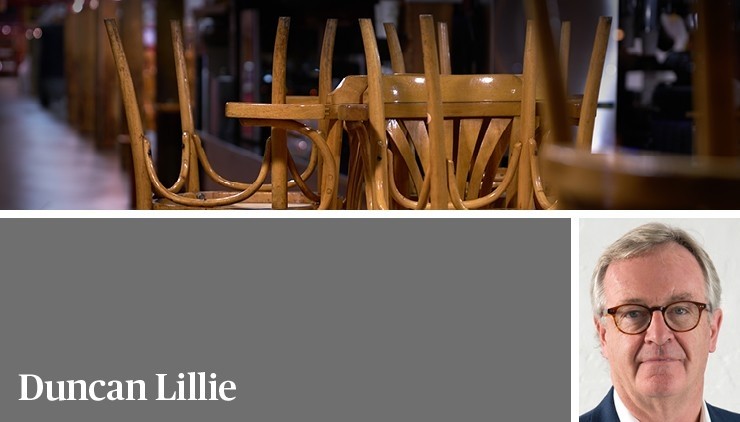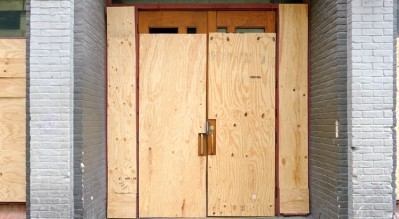Taking the arbitrary out of arbitration

There is something beneficial about uncertainty, it can have the effect of focusing the mind. This is increasingly evident in the ongoing discussions between landlords and operators in the hospitality sector, as they seek an agreement on rent arrears payments accrued because of the pandemic.
The uncertainty is coming from Government policy on commercial debt. The 4 August paper (Supporting businesses with commercial rent debts: policy statement) is short on detail. The aim is clearly to ring fence debt accrued from March of last year, for tenants forced to close as a result of Covid-19, until trading restrictions are removed, with a binding arbitration to be introduced should an agreement not be reached. The next step is to take this to parliament to kick start new legislation, but given we’re still in the summer recess, and the significant events taking place abroad, it remains to be seen whether there will be sufficient time in the next session to deal with this. The minutia of the policy needs to be scrutinised properly, with so many nuances at play.
Before we get there however, we cannot forget that negotiations are continuing, with a clear determination from all sides to find resolution before – effectively – the government must step in. Ideally, we’d have clear policy or guidance now on exactly what will happen by March 2022, but this is lacking. Exactly what is meant by ‘restrictions being lifted’ is unknown, as is how arbitration will be implemented. For the latter, a clear framework is needed, to give clarity to proceedings and so the arbitrator can be certain of the extent of their jurisdiction. It is possible that their powers to award an apportionment of rent arrears between landlord and tenant might be limited to a percentage of the total arrears, unless exceptional circumstances dictate otherwise.
Looking at how the powers are likely to extend, it is fairly safe to assume that an arbitrator will be able to determine liabilities for rental arrears accrued during periods of closure. It is unclear though whether they will have jurisdiction over arrears accrued during various points over the year or so when levels of restrictions differed, before May 17 2021 when the sector effectively reopened.
If there is to be trust in this process, arbitrators will need to be given the freedom to objectively consider each case on its merits. There are lots of other considerations, outside of timings and the nature of restrictions. Outside seating has taken on a greater significance because of Covid, both from a safety perspective and to add more covers. While it was a great success last summer and looks set to continue for a while yet, not every business has been able to take advantage of it because of the nature of their outdoor space, or lack thereof. There has also been a move towards new revenue streams, with takeaway and meal kits to the fore, but these have different commercial implications which need to be taken into account.
While arbitration does offer an element of finality, it remains to be seen how the property sector, in general, reacts to their awards. It is impossible to please all parties, despite best intentions to do so, and having this decision taken out of the landlord-tenant negotiation process means a greater likelihood of one side ending with a better resolution than the other. What is clear however is that there is a window now for landlords and tenants to control their own destiny, and this has to be encouraged over waiting for a third party to settle it all up.
The rewards of a sensible commercial settlement are obvious in the hospitality sector. Back in May 2020 I penned an opinion piece calling for ‘three Cs’ – collaboration, co-operation, and compromise. There has been enormous change since then, but the need for these three tenets remains. Where we have been able to construct open dialogue based around a collaborative and co-operative approach, we’ve seen great results that have instilled certainty for all involved. Why risk irreparably harming the vital landlord-tenant relationship by forcing arbitration, when a mutually beneficial compromise is genuinely achievable?
As an example, Shelley Sandzer has recently advised Trispan on its investment in the 30-strong Vietnamese restaurant group Pho through its dedicated restaurant fund Rising Stars. Trispan, along with a few other sector-specific investors, are giving restaurants a vote of confidence in situations where rent debt has been addressed, allowing resources to be directed to securing the future vitality of the businesses. This is absolutely welcomed, given the challenges faced in the past year and a half. As much attention as possible needs to be on the long-term, as the short-term day-to-day necessitated approach for the pandemic subsides.
The government-led uncertainty is focusing minds in this way, but we now want to see a renewed vigour for collaboration between landlords and tenants. Agreeing terms for the repayment of rental arrears before the arbitrators get involved is in everybody’s interest, especially when there is no clarity on how this might be handled next Spring. Commercially acceptable compromise is possible – we’ve seen it and been a part of it already – and it is necessary for restoring confidence in the sector.
Duncan Lillie is managing director at Shelley Sandzer Professional Services






























